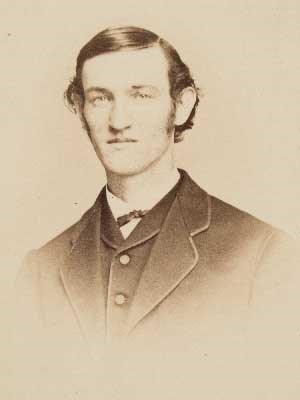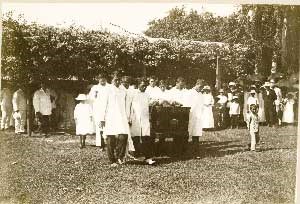
Connecticut State Library
Atwater was transferred from Richmond to Andersonville in late February 1864, where he arrived on March 1. In May he became ill again with chronic diarrhea and was admitted to the hospital, which at the time of his admission was still located inside the prison stockade. Remembering the lessons learned in Richmond, he approached Dr. Isaiah White about accepting a parole to work in the hospital as a clerk. He was paroled June 15 and was one of several prisoners charged with maintaining the death register. In late August he took action, and began to secretly copy the death list, largely out of a belief that the Confederate army at Camp Sumter would not turn over the main copy at the end of the war.
Atwater was transferred from Andersonville in February 1865, smuggling his copy of the burial list out with him. He was paroled at the end of the month and was home in Connecticut by mid March 1865. He notified Federal officials of the burial record in his possession, and an expedition was planned was to Andersonville to mark the graves at the prison. While this expedition was being planned, Atwater contacted Clara Barton, offering to assist her with her work notifying the families of missing soldiers. In late July and early August 1865 both Atwater and Barton accompanied the army's expedition to mark and establish Andersonville National Cemetery, and the two spent much of their time going through burial records and writing letters to families of the dead. 
Connecticut State Library Atwater was one of the most important enlisted soldiers of the Civil War. Around half of all Civil War dead are today marked in unknown or unmarked graves, and the rate is higher in most southern prisons. However, thanks to the work of Atwater and the other paroled clerks to maintain accurate records, and his courage to secretly copy and sneak the list out at great personal risk, around ninety five percent of the prisoner graves at Andersonville are marked. |
Last updated: April 14, 2015
